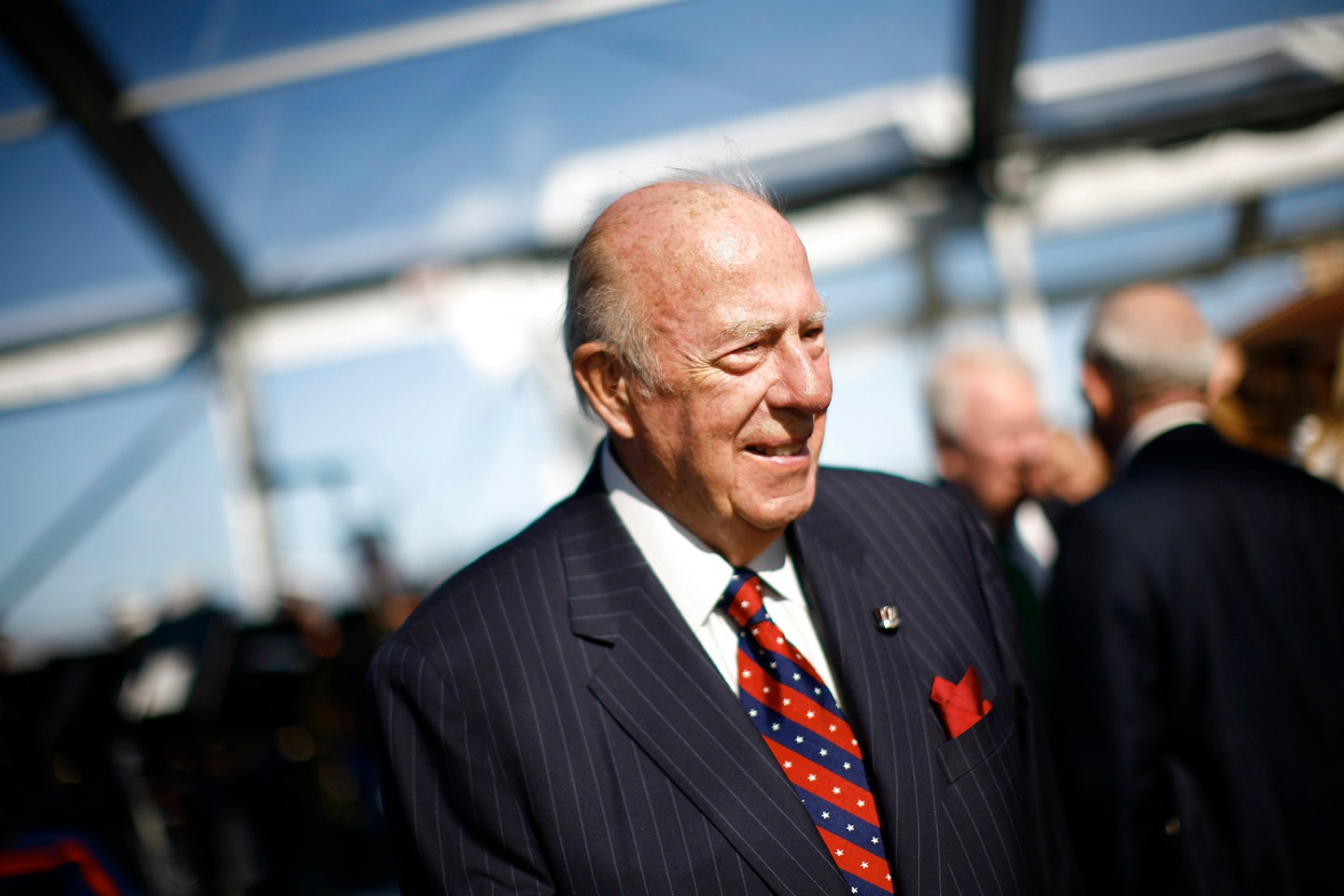Little known and privately held, Theranos has assembled what may be, in terms of public service, the most illustrious board in U.S. corporate history. It includes three former U.S. cabinet secretaries, two former U.S. senators, a retired Navy admiral and a retired Marine Corps general.
In 2011, explains company founder Elizabeth Holmes, she realized that changing the way health care is delivered in this country would require the help of great strategists.
That July she finagled an introduction to George Shultz (above), the former Secretary of State, Treasury, and Labor, at Stanford’s Hoover Institution. Shultz had held four cabinet-level positions, counting his stint as director of the Office of Management and Budget, and had also been president of engineering giant Bechtel Group and a director at biopharmaceutical company Gilead Sciences.
Their scheduled 10-minute interview lasted 2½ hours. Shultz was captivated by what Holmes’s technologies could mean for health care, but was struck also by her “purity of motivation,” he says. He joined Theranos’s board that same month.
“He and I have seen each other at least once a week since I first met him,” Holmes says.
Three years later nearly all the other outside directors on Theranos’s board are people who were introduced to the company through Shultz, now 93. They are former Secretary of Defense Bill Perry, former Secretary of State and National Security Adviser Henry Kissinger, former U.S. Senators Sam Nunn and Bill Frist (a heart-transplant surgeon), retired U.S. Navy Adm. Gary Roughead, retired U.S. Marine Corp Gen. James Mattis, former Wells Fargo CEO and chairman Dick Kovacevich, and former Bechtel Group CEO Riley Bechtel.
“My belief is,” says Shultz, “that if you’re making a contribution, you’re living. If you’re not making any kind of contribution, well—. That’s my motivation, and it’s very parallel to Elizabeth’s.”
This story is from the June 30, 2014 issue of Fortune.












